Kawasaki unveiled five new models today, and my second response was that the news was less momentous than I’d been expecting. Maybe egged on by wishful thinking wafting around the internet (and a friend of mine who is motorcycle shopping right now), I thought maybe we’d see a Kawasaki entry into the ADV market, such as a KLR650 replacement based around the 650 cc twin in the Versys. We didn’t.
Anyway, that was my second reaction. My first reaction: Kawasaki’s building a new supermoto? That’s awesome! Looks great! And what they hell are they thinking?
Two of the new models Kawasaki just showed us are the KLX300 dual-sport and KLX300SM supermoto. Both get an updated version of the fuel-injected, liquid-cooled single from the KLX250, bored out six millimeters to increase displacement to 292 cc. With adjustable suspension and bigger brakes for street-going duty and a curb weight, fully fueled, of 304 pounds, the supermoto looks like great fun.
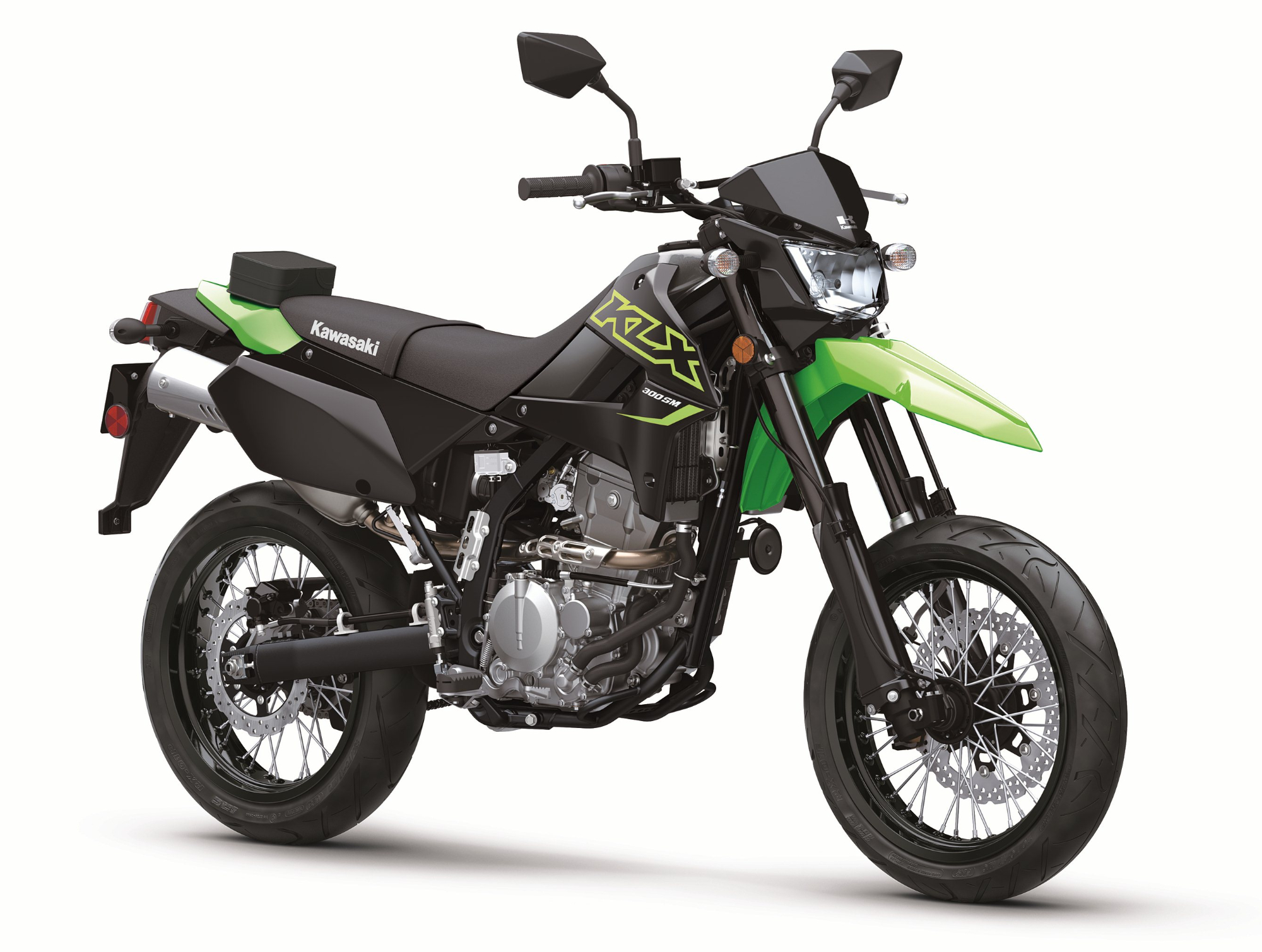
The 2021 Kawasaki KLX300SM. Considering the sales of the last (very similar) supermoto Kawasaki built, I didn’t expect to see this new model for 2021. Kawasaki photo.
And if history is any guide, while I’m wishing I could find an excuse to buy one, absolutely nobody else will buy them.
There’s a personal story here.
A decade ago, the KLX that got away
Back in the aughts, Kawasaki introduced the KLX250S dual-sport bike and the KLX250SF supermoto. The KLX250S brought a mostly modern single to a class where many light dual-sports were still soldiering on with old air-cooled engines. But I say “mostly” modern because the KLX250S’s one drawback was its lack of fuel injection. Its carburetor was tuned extremely lean to meet emissions standards. It was something just about every KLX owner fixed by changing the jetting.
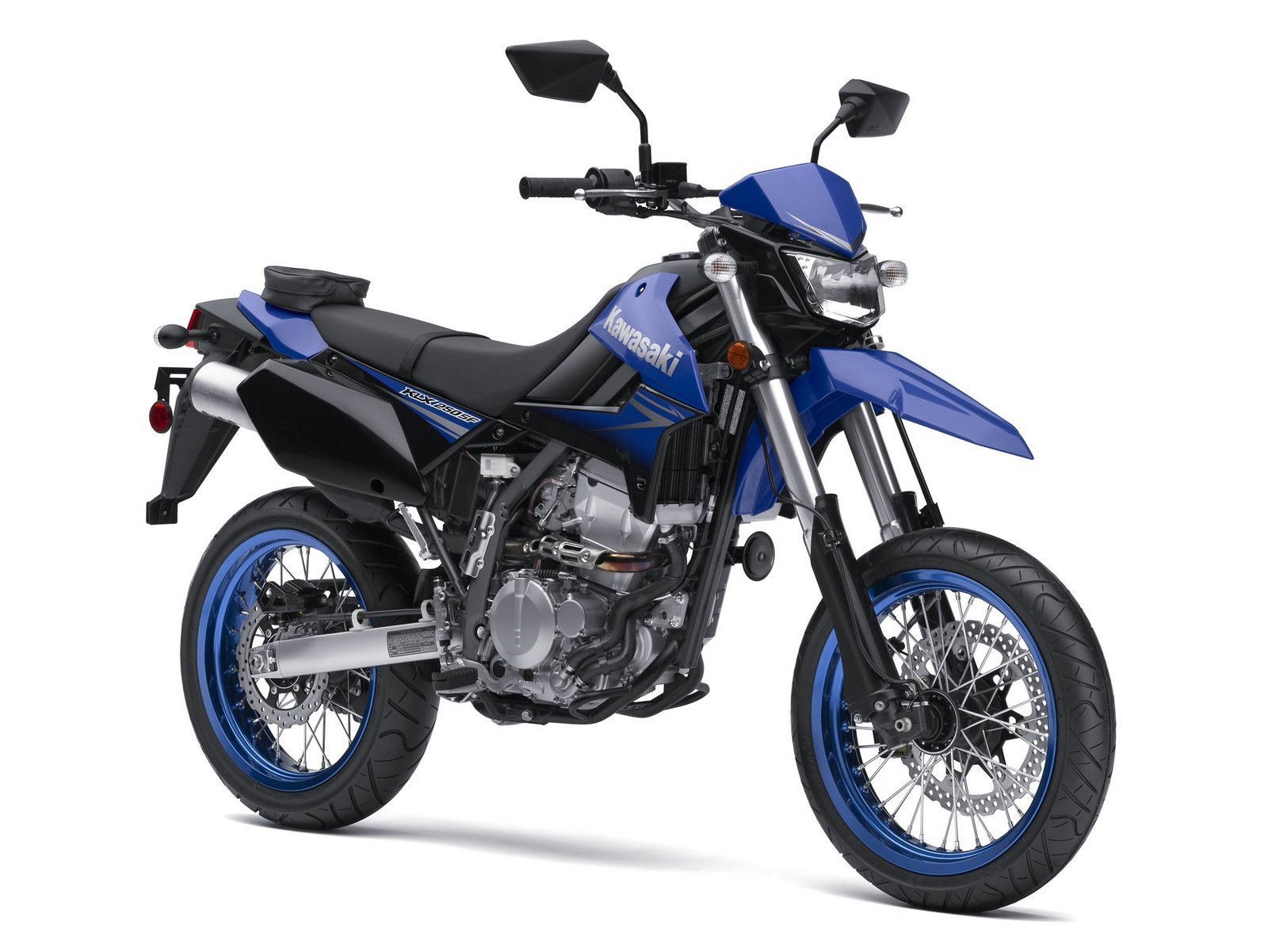
The 2010 KLX250SF above looks strikingly similar to the 2021 KLX300SM. The spec sheets are nearly identical, too, except for fuel injection and six extra millimeters of bore in the cylinder. Kawasaki didn’t exactly start from scratch to build its new lightweight supermoto. Kawasaki photo.
Meanwhile, the KLX250SF supermoto version never caught on. Actually, that’s putting it kindly. It was a boat anchor on dealership floors. For one thing, supermoto never gained as much popularity in the U.S. market as I thought it would. For another, the few hardcore supermoto fans out there wanted more power and performance, so they home-built 450s and the like. The Kawi was too mild for them.
I’ve always been a fan of smaller and lighter, but at the time, I was shopping for a bike suitable for long-distance riding. I was inclined toward Kawasaki because I was then writing regularly for the now defunct Riders of Kawasaki magazine, Accelerate. One option I was considering was finding a used Z750, another Kawasaki sales flop, and a dealer about 50 miles north of where we were living back then had one. On a nice spring day, it was a good excuse to take a ride.
The condition of the used Z750 was a little disappointing and I wasn’t sure it was a good choice for me anyway. But while I was talking to the sales guy, I saw a new KLX250SF, which had already been discontinued at that point, and I offhandedly remarked, “I always thought that would be a fun bike.”
“We bought 10 of those at auction,” the sales guy said. “We’re blowing them out at $2,999.”
Under three grand for a brand new motorcycle that looked like a lot of fun, would be cheap to run and could be used for just about all the riding I did that wasn’t an out-of-town trip? A motorcycle with an original MSRP well north of $5,000? I would have jumped at it, except for one problem. Well, two. Well, maybe three.
The main problem was that I was shopping that day because I needed a motorcycle I could outfit for long trips. I would eventually buy the Kawasaki Versys that I would put nearly 90,000 miles on over the following nine years before I sold it. The second problem was that my freelance business wasn’t exactly at its peak at that time, so I was watching my spending. Buying a motorcycle for fun when I needed something practical was not a responsible option at the moment. And the third problem is lifelong: I’m cheap.
Anyway, I walked out of the dealership with a longing look over my shoulder at the little supermoto with the $2,999 price tag. I still think of it as one of the bargains that got away.
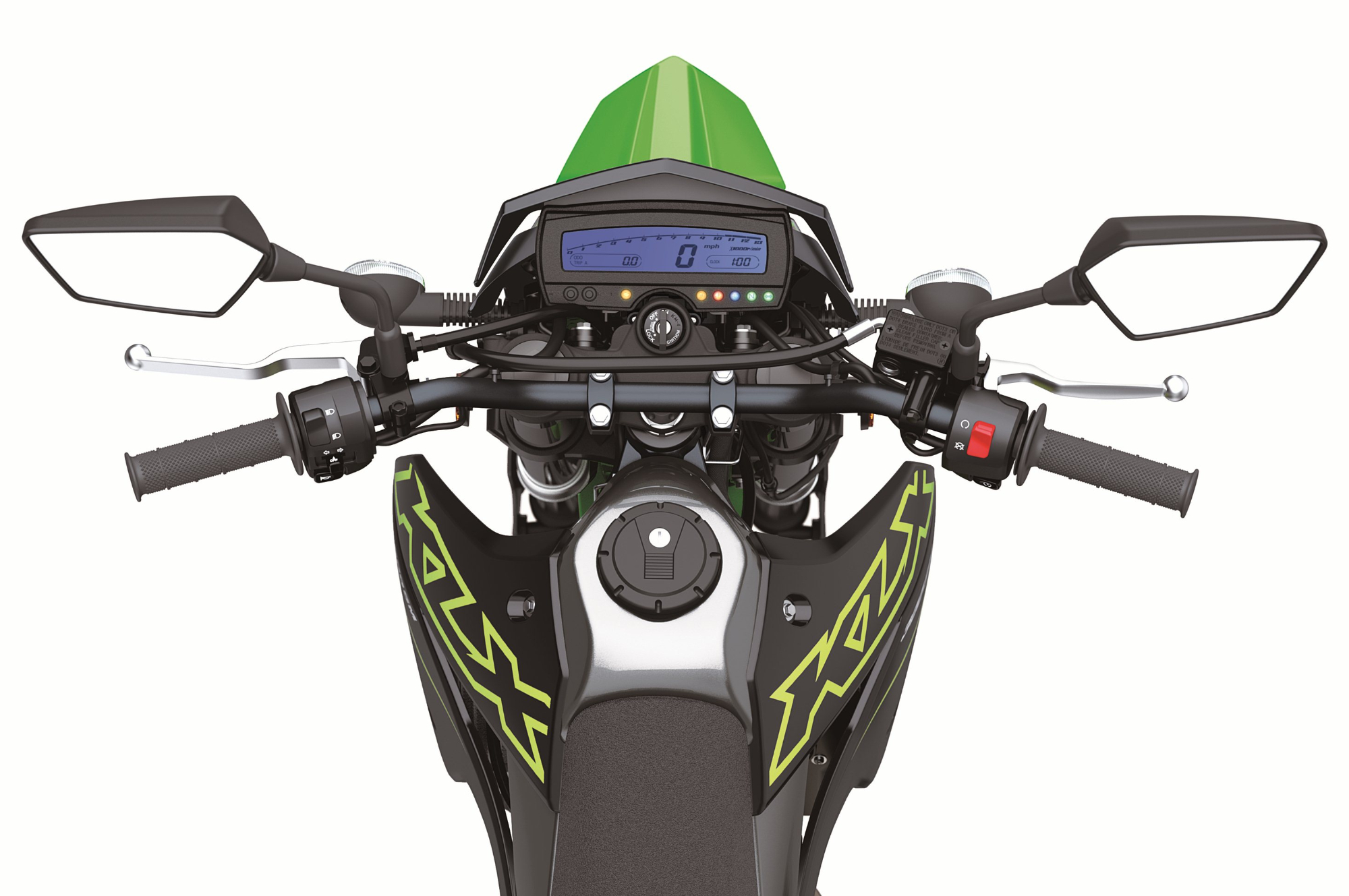
I remember thinking in 2010 that the digital display on the KLX250SF looked pretty slick for an inexpensive bike. It looks exactly the same for 2021, which means it no longer is keeping up with the times, much less ahead of them. Probably still works just fine, though. photo.
Enter the KLX300SM — but why?
The KLX300SM just unveiled has the fuel injection that came on the KLX250, which Kawasaki revived a couple of years ago, so that solves the old model’s carburetor problems. It has a few more cubic centimeters of displacement, so that should help, at least a little, with the complaints about power output. It will still be far too slow to interest the hardcore supermoto fans, but there seems to be fewer of them than ever, anyway.
Those two changes make the bike even more appealing to me. Though I suspect they’re just about the only changes. The photos of the 2009 and 2021 models look surprisingly similar, and the spec sheets are mostly the same, too. Even the digital dash looks unchanged. (It looked fresh back in 2010. Not so cutting-edge today.)
Of course there’s one other difference. Kawasaki plans to ask $5,999 for the new KLX300SM. That’s reasonable inflation compared to the $5,699 asking price a decade ago, but it’s also twice the $2,999 deal I passed up.
I’d still like to have one. But everything I’d do on a KLX300SM is already covered by two old bikes I can’t part with for sentimental reasons: my old Triumph Speed Triple and my family heirloom Suzuki GN125. Both are worthless, or priceless, depending on how you look at it, but as long as I can keep them running I’ll keep them, and there’s definitely no room in the garage for additions.
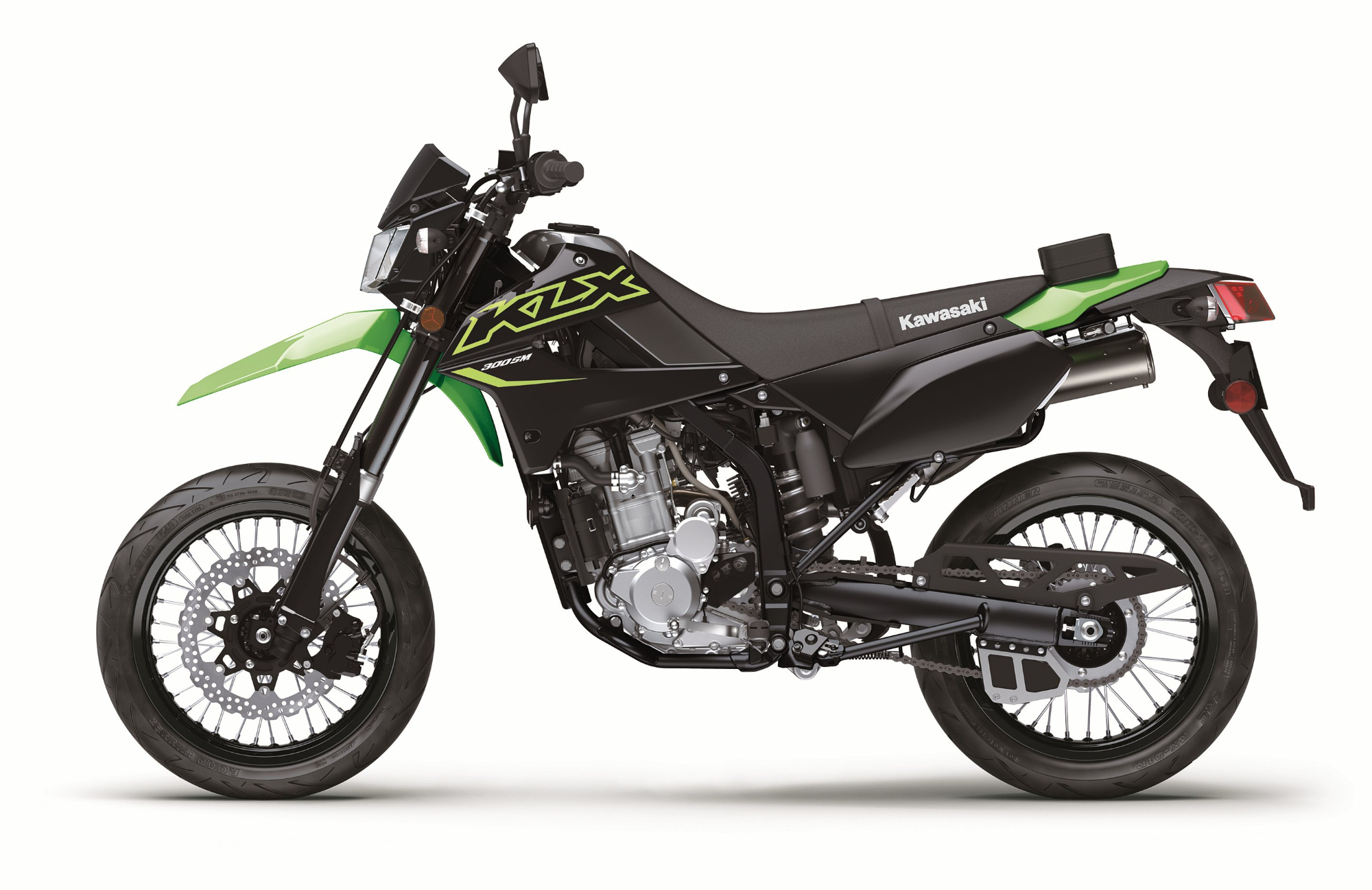
The Kawasaki KLX300SM. Not much new here, but it still looks like fun to me. Kawasaki photo.
Based on the teaser video Kawasaki issued a few weeks ago, some speculated that Kawasaki could be introducing a supermoto, but I didn’t believe it, not after the way the previous effort failed to sell and disappeared after just three years in the U.S. market. Will the 300SM do any better than the 250SF? Hard as I try, I can’t dream up any reason why it would.
Maybe in a couple of years I’ll find a killer deal on a leftover KLX300SF. I’ll probably still be wanting one then.
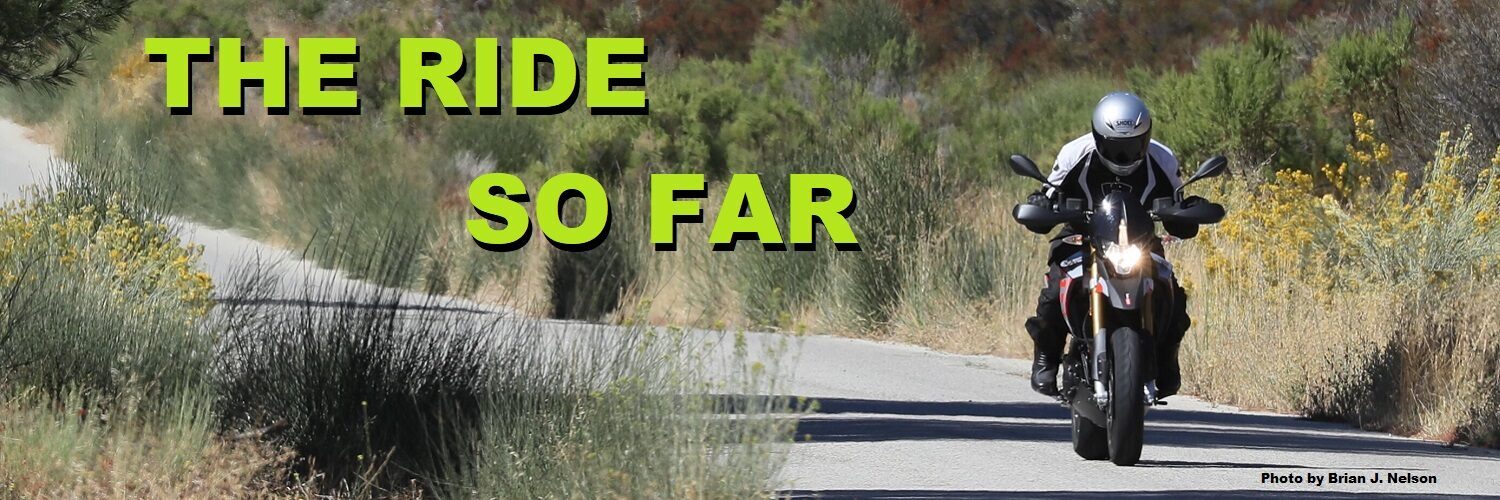
If not for the KLX250SF, I wouldn’t own a 250 dual sport today. A buddy bought a used one and let me ride it at Deal’s Gap. That’s the most fun I had on a motorcycle in a long time. To date, the brakes on that little 250 (10 years old at the time), are to date the best I’ve ever experienced on a motorcycle. If you breathed on that lever that bike would come to a halt. I keep thinking I want to trade the TooFatty plus boot for a little more poke… then I remind myself a sumo kit might make that bike even more fun… anywho, I love what Team Green has done with this new 300, I’m looking forward to a demo day.
The 250 dual-sport class has a spot in my heart. Those bikes can do a lot of different things and I put about 20,000 miles on mine just using it for riding around town and winter commuting for years. A couple of years ago, one of my fondest memories of a day of riding was when I had a weekend day off while visiting RevZilla HQ in Philadelphia and I rode around the city and through the back roads of southern New Jersey on our loaner Honda CRF250L Rally. The suspension was overcooked spaghetti and it’s not light by dual-sport standards, but it was fun, even on city highways. I’d still have a cheap 250 dual-sport in the lineup except my hand-me-down GN125 covers much of the same territory (less capably but with more sentimental value) and I’m out of garage space.